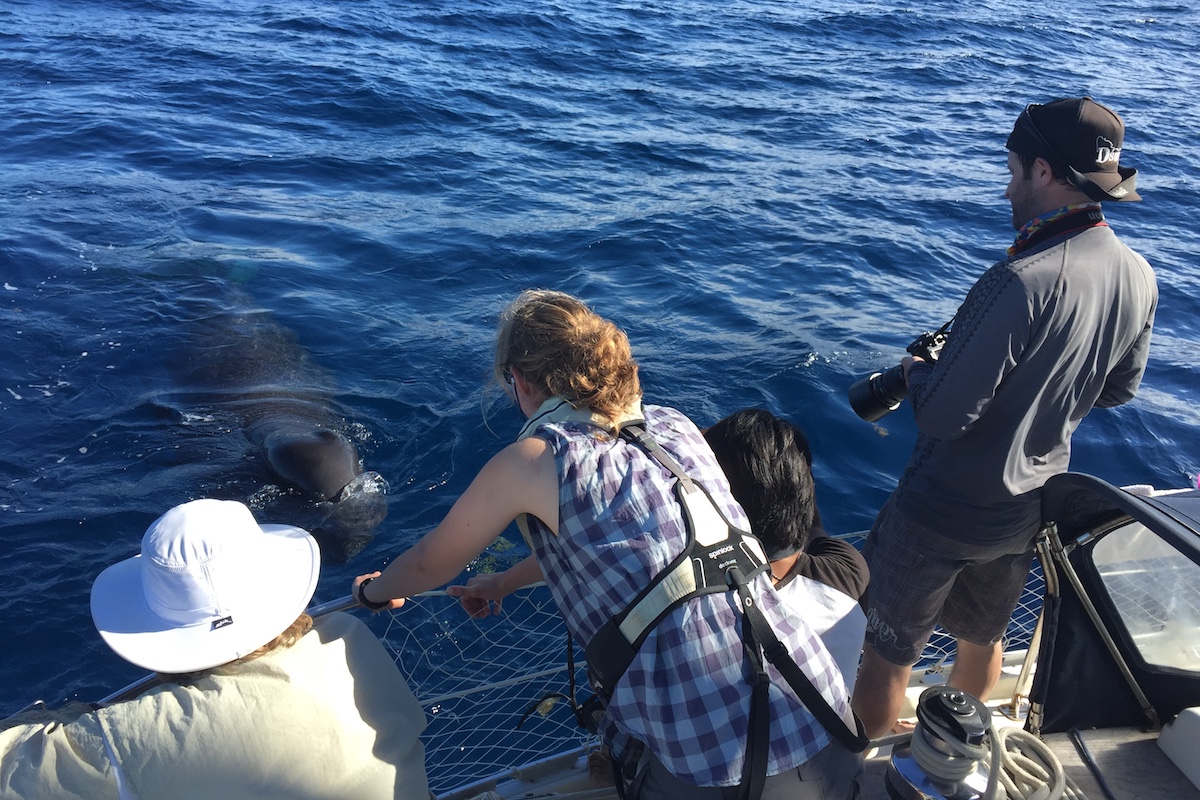“What do you like best about being a grad student?” I’ve been asked this question many times since I started my PhD at Dalhousie in 2016. There are many things I love about grad student life at Dal: my research subject (sperm whales), my lab, the biology department, living in Halifax. But by far my favourite part of being a grad student is fieldwork.
I study how sperm whale communication varies over space and time. In collaboration with The Dominica Sperm Whale Project, I’ve spent over eight months studying sperm whales in the Caribbean Sea. Those months have been, hands-down, some of the best of my life. But fieldwork comes with its own unique set of challenges. The trick to getting the most out of it is to anticipate these challenges and come up with strategies to mitigate them.
Challenge 1: Weather
I’ve worked on four different marine mammal fieldwork projects: two at extremely cold field sites (Southern right whales in Argentina, Northern bottlenose whales off Newfoundland) and two at extremely hot field sites (bottlenose dolphins in Florida, sperm whales in the Caribbean). Feeling too cold or too hot quickly makes it hard to do your job well. This was especially clear to me while working off Newfoundland where we spent most of our days sailing through thick fog, sometimes spotting distant icebergs!
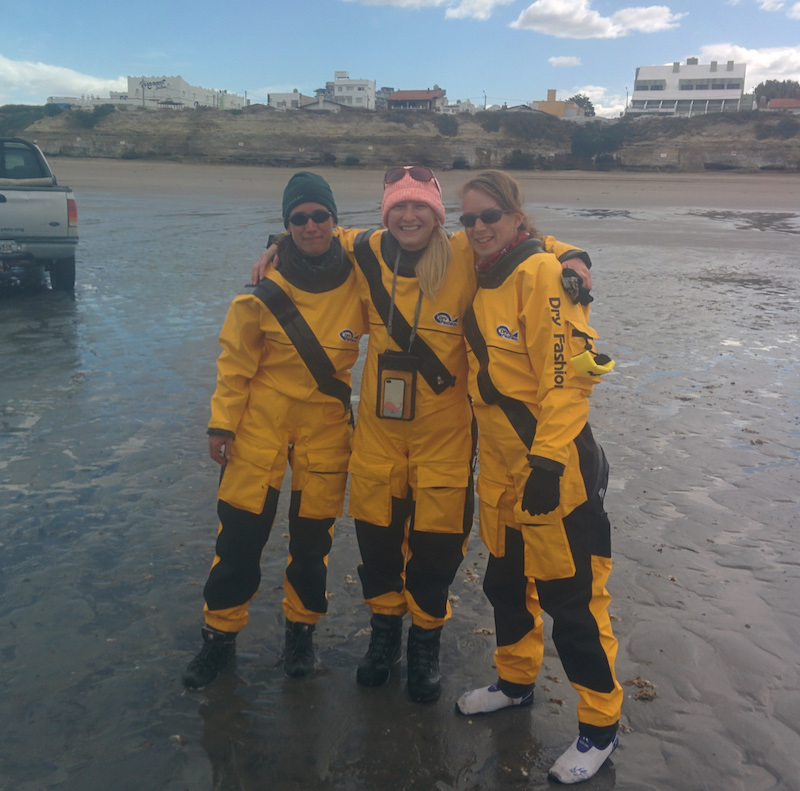 Photo: Daniel Zitterbart
Photo: Daniel Zitterbart
My solution: Invest in appropriate field gear! That means warm, wooly layers for cold fieldwork and light, sun-protective layers for hot fieldwork. If you’ll be working on a boat, that means sturdy, waterproof layers. Good field gear can be expensive, but some research grants can be used to pay for gear, which means you don’t have to spend a lot of your own money to be comfortable in the field.
Challenge 2: No Internet
No Internet may be a challenge of fieldwork, but it actually feels really refreshing once you get used to it. When you do remote or boat-based fieldwork, odds are your access to the Net will be sporadic at best, non-existent at worst. This can be stressful if you have upcoming deadlines like grant applications, conference submissions, or taxes.
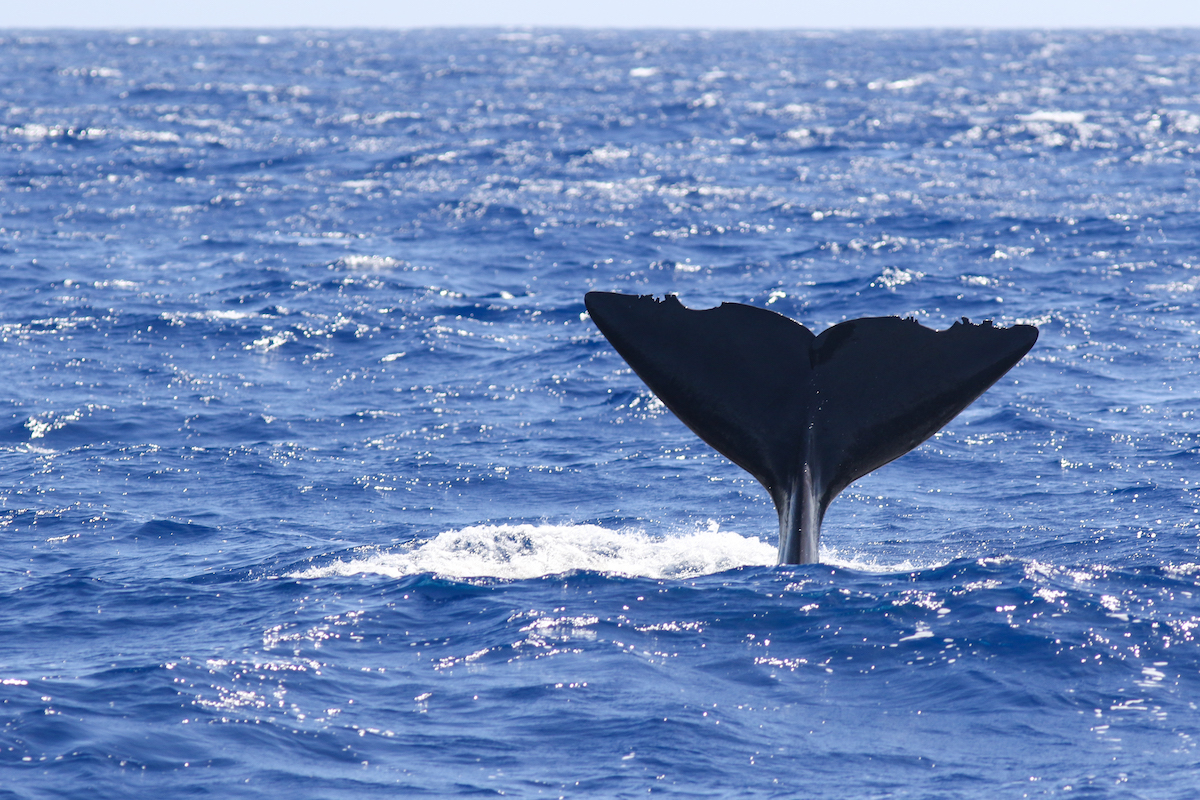 Photo: Taylor Hersh
Photo: Taylor Hersh
My solution: Plan ahead! Make sure you have a list of upcoming deadlines and know what you need to do to meet them. We typically go into port every two weeks in the Caribbean. I make sure I have emails drafted and applications completed before we get to shore, so that once we’re on land I can quickly send things off. Other than that, embrace it! In a world where we are increasingly “plugged in,” not having access to Internet during fieldwork is actually really refreshing. It lets me appreciate where I am and what I’m doing even more.
Challenge 3: No time off
For every fieldwork project I’ve worked on, we rarely (if ever) had a scheduled day off. Often this comes down to limited time and funds. If you’re only in the field for a month and are trying to make the most of a small research budget, the best way to do that is by working as long and as hard as you can. In the Caribbean, this means days that start before sunrise and end long after the sun has set.
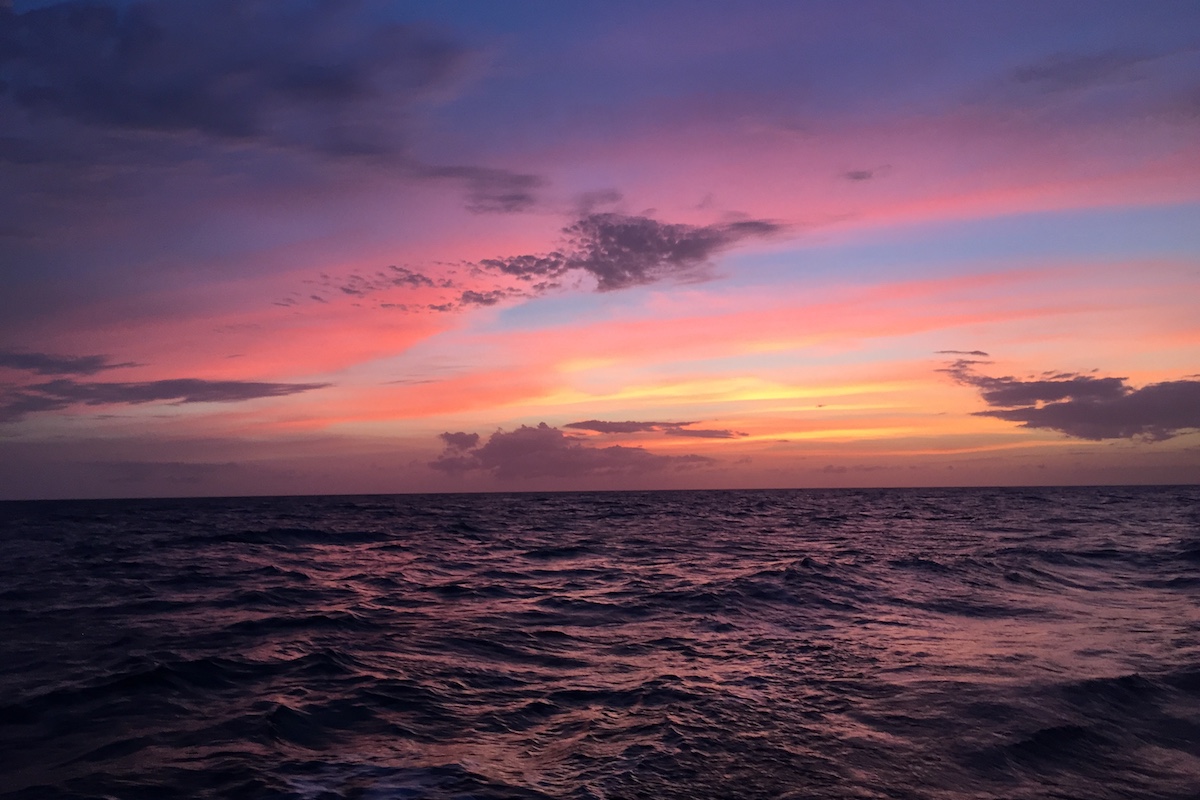 Photo: Taylor Hersh
Photo: Taylor Hersh
My solution: You may not have scheduled days off, but you’ll inevitably have some slower days. In the Caribbean, these are days where the weather is bad or we can’t find whales. Take full advantage of those slower days: read a book, listen to music, do some easy data cleanup, or just catch up on sleep. Actively recharging your batteries on slower days makes the (often) long stretches between them feel less exhausting.
Challenge 4: no personal space
Another thing that can make fieldwork difficult is the lack of personal space. I’ve experienced this directly during my graduate fieldwork because I live on a 12m sailboat for weeks at a time with four other people. As a naturally independent person, learning to live in such close quarters was definitely an adjustment.
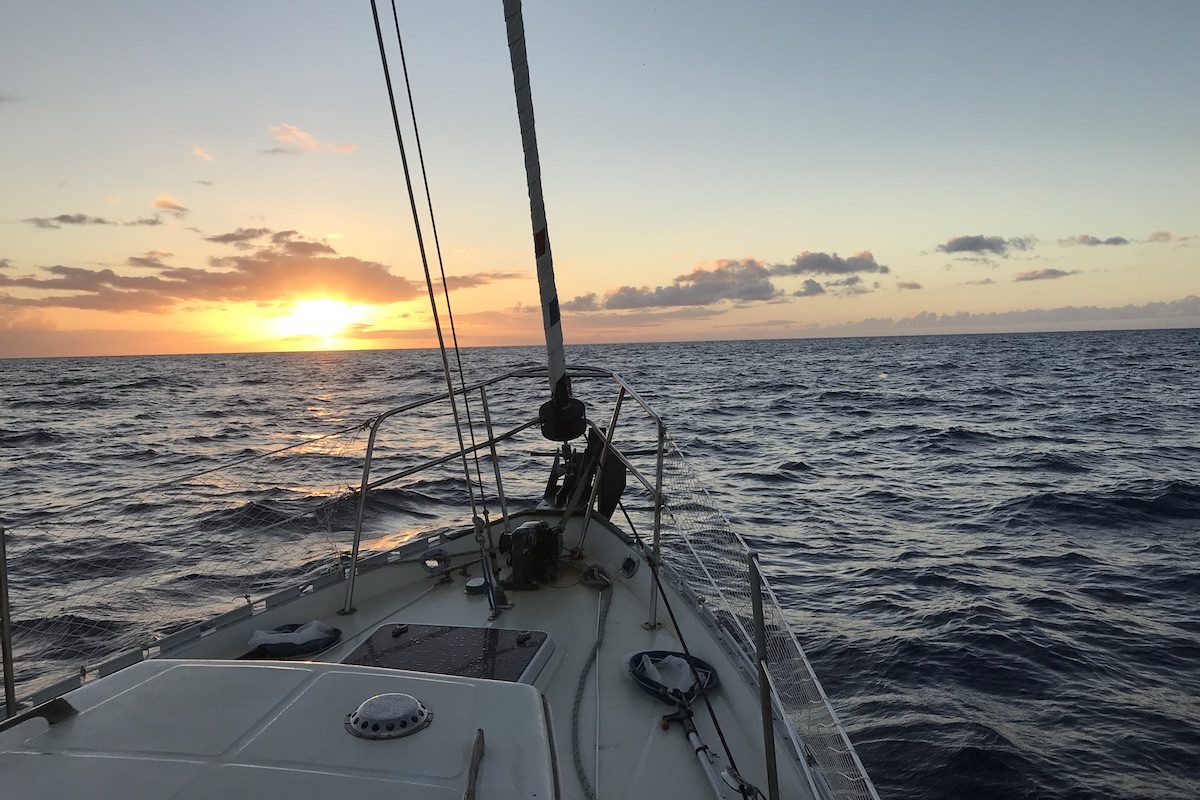 Photo: Taylor Hersh
Photo: Taylor Hersh
My solution: Even though our research vessel can feel crammed at times, there are always ways to find a little extra space. My personal favourite is to go up the mast, which is a win-win because I get a bit more space while also being in prime position to spot sperm whales. Personalizing the places that are your own, like your bunk, is another good way to create your own little space in a crowded or chaotic environment.
Despite the challenges, fieldwork is my absolute favourite part of being a grad student. Some of my closest friends started out as strangers I met during fieldwork. Now we call ourselves a ’field family’ and keep in touch throughout the year. The privilege of seeing sperm whales spend time with their own families makes the long hours I spend analyzing data between field seasons worthwhile and rewarding.
Fieldwork certainly comes with its own unique challenges, but if you go into it with realistic expectations and strategies to prevent burnout, it can be the best part of your grad student experience, too.

